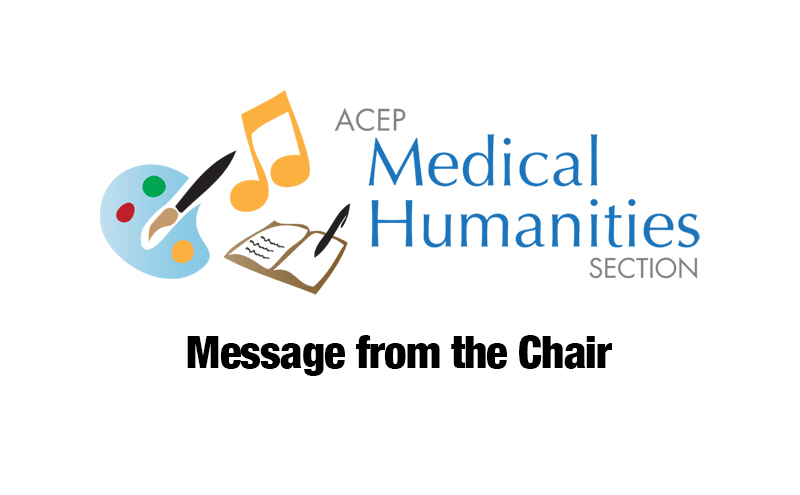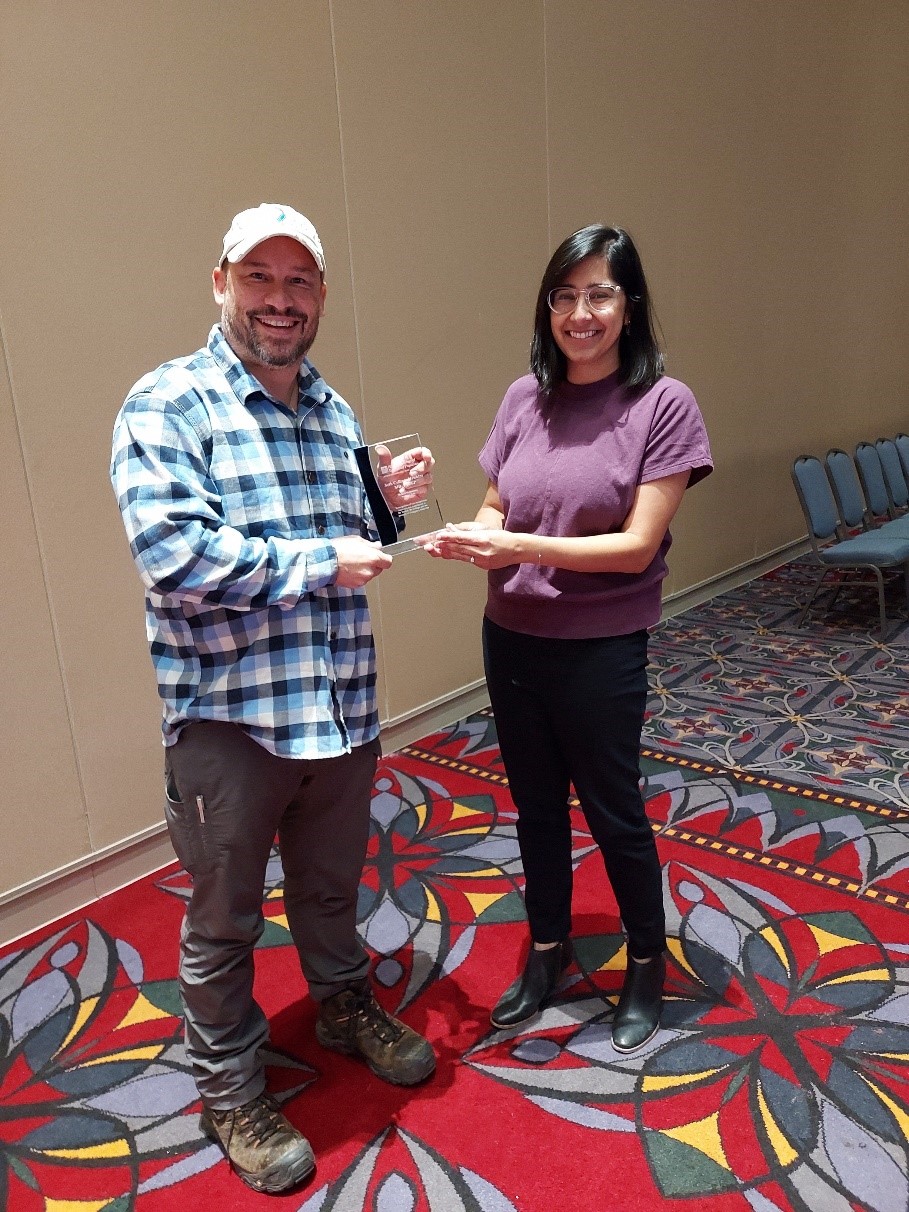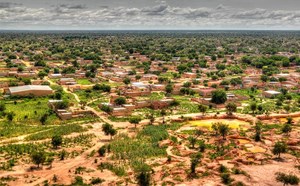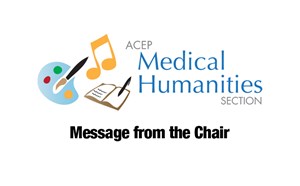
From the Chair
Kamna Balhara, MD, MA, FACEP
It is a privilege (and a joy) to have the opportunity to serve this section as Chair for the next two years! The efforts of past chairs have nurtured a truly unique and essential community. I had recently asked Tracy to share the history of the section so far, and I was awed - in its nearly twenty years (!) of existence, the section has swelled its ranks to over 130 members annually, sponsored events at ACEP Scientific Assemblies, created a grant-funded online curriculum [Humanities at the Bedside | ACEP], recognized superlative written and visual works from members, and published these works in book form [Emergency Medicine Narratives: An Emergency Medicine Humanities Collection (acep.org)]. This has been an extraordinary trajectory, and I look forward to carrying the torch forward. I am especially grateful to Seth Collings Hawkins for his leadership over the recent years; the momentum and continued sense of community that have been sustained under his guidance are all the more remarkable given that his tenure came during a universally challenging time. I also want to express my appreciation to Tracy Napper for keeping us all connected and equipping this section for success. Most of all, I am thrilled to have a chance to work with and learn from the incredibly talented colleagues who comprise this section. It was wonderful to see some of you in person in Philadelphia at ACEP23.
It is my hope that, as a collective, we can advance medical humanities from the periphery of emergency medicine to an integral pillar of emergency medicine. As a specialty, we are facing unprecedented crises, and this unique confluence of issues demands unique solutions. In the face of a belated reckoning with injustice and disparities, concerns about trainees and workforce recruitment and retention, deepening fissures and pressures of an overburdened health care system, and social discord and polarization, we, as emergency physicians, have a pivotal opportunity to reimagine and strengthen our specialty, and I propose that the medical humanities represent the ideal lens by which to undertake this reimagining. To this end, I would like to focus on how we, leveraging our diverse strengths, talents, and interests, can advocate for an essential role for the arts and humanities in emergency medicine. Towards this goal, I would like to suggest a few projects or initiatives, and would greatly appreciate your input, insight, and expertise on how we should move forward.
- Recognizing, disseminating, and sharing the current landscape of medical humanities in emergency medicine.
- I would like to bring to fruition Seth’s idea of a bibliography that captures “who is doing what.” I envision a database, and eventual a speaker’s bureau-style directory, that highlights our members’ accomplishments in the following categories: 1) med hums-relevant publications (creative or scholarly; in any medium - written or visual, could be published online as well, etc.), 2) educational initiatives/curricula in med hums, 3) med hums-related research or scholarly inquiry, 4) med hums-related patient care initiatives and 4) existing resources that could help support others seeking to integrate more medical humanities into their own personal or professional practice. We could do so by sending out an online survey, then hosting the resulting repository on our site, with an annual call for updates. I imagine that this would not only give everyone’s work greater visibility and highlight areas for future collaborations, but also help us build the foundation for a future call to action (see below).
- Would anyone like to be involved in developing this repository? What other categories should we look into/what other information should we seek to collect?
- Writing a white paper/consensus paper in a leading emergency medicine journal to advocate for a framework for the integration of the arts and humanities across emergency medicine.
- Beyond promoting well-being, generating communication and cohesion, and providing outlets for critical thinking and creative expression, the arts and humanities represent a lens by which to deconstruct and consider problems facing emergency medicine (including language, as pointed out by Seth, Rachel, and others at our recent meeting), as an important means to connect with the communities we serve, and as an opportunity for advocacy and effective public communication. We know this, but we’re preaching to the choir! I would love to make our case to emergency medicine at large by writing a white paper advocating for the integral and essential value of medical humanities in emergency medicine, and highlighting the work that this section’s members are already doing (as above). To this end, would any section members be interested in helping to craft this with me? Which other stakeholders should we include?
- Developing a stronger presence in faculty development.
-
- If we are to advocate for the humanities to be integrated more broadly into emergency medicine scholarship, inquiry, education, and patient care, we must also create capacity for ACEP members to feel more empowered/equipped to bring the humanities to their teams and trainees. How do we establish a stronger presence at ACEP (courses/workshops) or develop webinars open to the ACEP membership?
This is a lot, I know! But I think we all believe that the arts and humanities are a core pillar of what make both our personal and professional lives fulfilling. Let us make the case for the humanities as a core pillar of emergency medicine. We exist in a liminal space – at the threshold of health and illness, of hospital and community, of health care institutions and society – we are the stewards of this unique space, and the arts and humanities are incredibly relevant to us as individuals and as a specialty. I hope that we can use our collective energy and talents to make the arts and humanities accessible and understood as an incredibly valuable tool for all our colleagues.
Looking forward to hearing from you all soon!
Dr. Balhara gives Dr. Hawkins his outgoing chair plaque at the section meeting at ACEP23 in Philadelphia.



